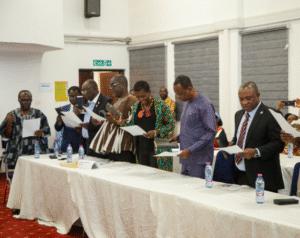Published
6 months agoon
By
Adubianews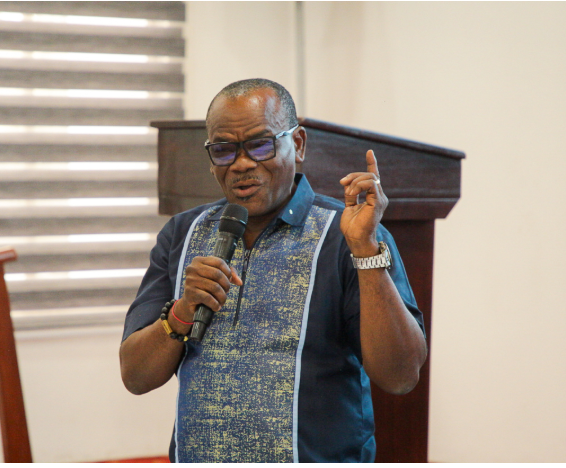
Ghana’s government has issued a strong warning to engineers and contractors, declaring that the era of substandard practices in the construction and water resources sector has come to an end.
At the inauguration of the Technical Committees of the Engineering Council of Ghana in Accra, the Minister for Works, Housing, and Water Resources, Kenneth Gilbert Adjei, announced that poor supervision, the use of fake materials, and the engagement of unlicensed practitioners will no longer be tolerated.
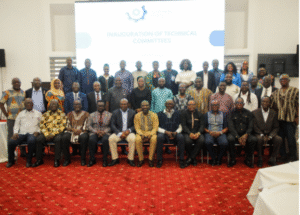
The Minister stressed that all individuals and firms must be properly licensed before undertaking engineering works. He outlined the government’s new directives, which include zero tolerance for substandard materials, a ban on unlicensed practitioners and firms, and strict oversight of engineering projects.
To implement these measures, six Technical Committees have been inaugurated under the Engineering Council. They are:
Disciplinary, Legal, and Ethics Committee
Education and Training Committee
Finance and Administration Committee
Licensing and Registration Committee
Public and International Affairs Committee
Standards and Professional Practice Committee
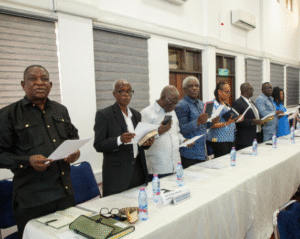
According to Mr. Adjei, these committees will play a vital role in enforcing discipline, strengthening regulatory oversight, and setting higher standards across the profession.
The tough stance comes amid a history of engineering failures in Ghana, including collapsed buildings, weak bridges, and water system breakdowns. In Accra and Kumasi, the collapse of multi-storey buildings in recent years has heightened public anger over poor supervision and the use of inferior materials.
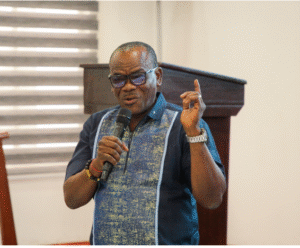
Calling such failures “a stain on Ghana’s development effort,” the Minister lamented the loss of resources and public trust caused by these incidents. He added: “The public demands safety and quality, and I expect these committees to become functional immediately.”
Mr. Adjei further warned that any signs of corruption or bias in the committees’ operations will be met with severe consequences.
